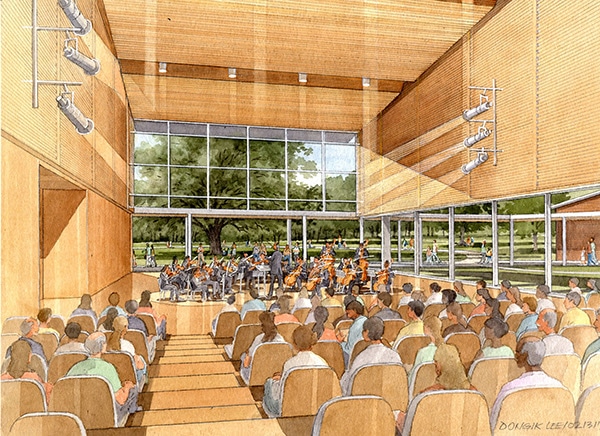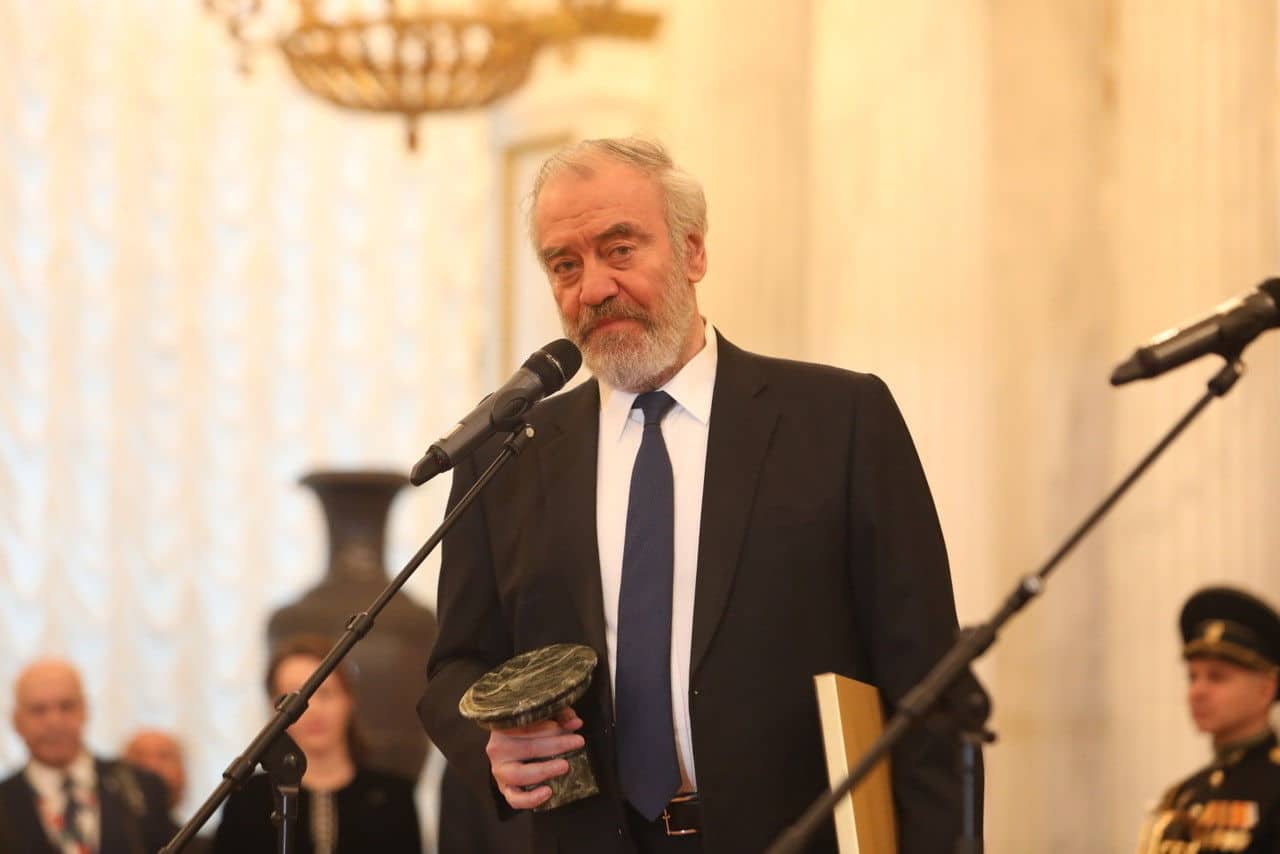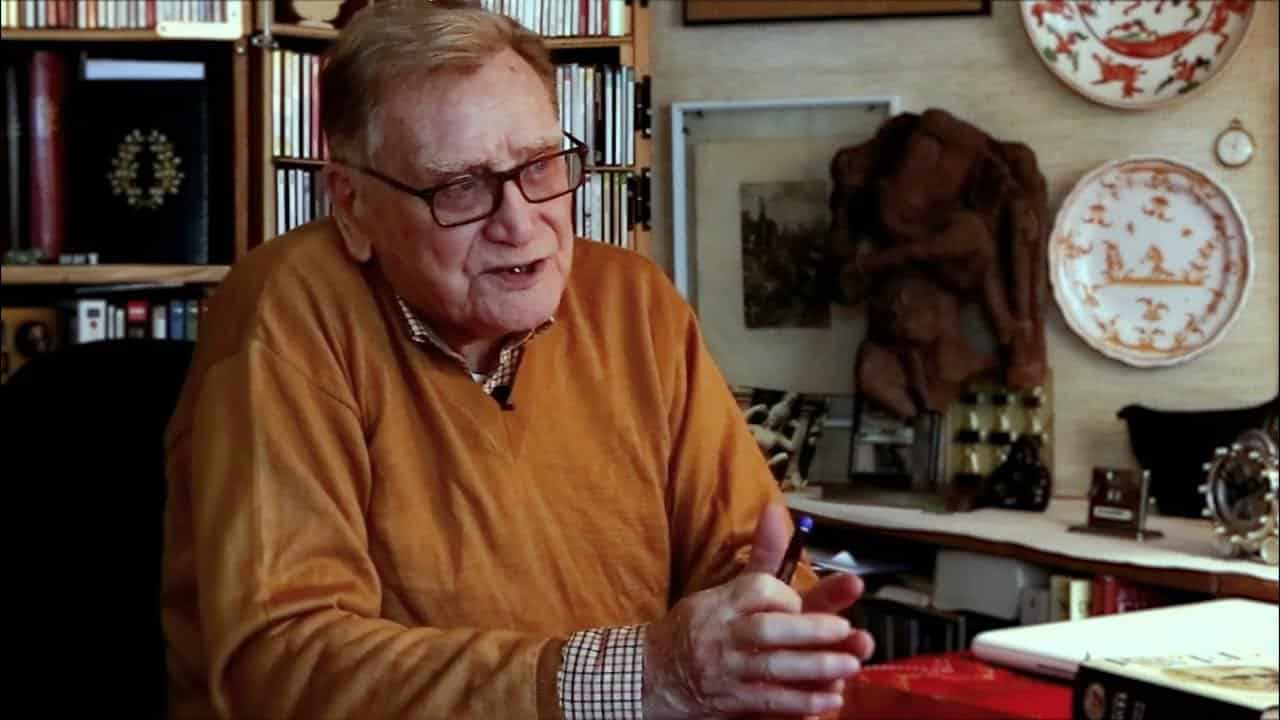Is this the best Boston can do?
mainThe Boston Symphony has built its 20-21 season around a cycle of Beethoven symphonies with Andris Nelson, a Shostakovich opera, ‘six major works of Richard Strauss’ and a repeat of the Thomas Ades piano concerto.
At a time of mass uncertainty, when the orchestra admits it has no idea of the season will start on time or when, the lack of alternative planning represents a mental lockdown more than a physical one.
Boston has been focussed these past three months on whether or not Tangelwood will go ahead. Probably not, it appears.
That dither time could have been more profitably invested in surprises for the next season, whenever it may start.
Other highlights:
Anna Rakitina, BSO Assistant Conductor in her Symphony Hall debut, leading music of Thomas Adès, Rachmaninoff, and Elgar (11/24-28); Thomas Wilkins, BSO Artistic Advisor for Education and Community Engagement, leading works by Ellington, Gershwin, and Still (1/28-30); Thomas Adès, BSO Artistic Partner, leading music of Prokofiev, Ravel, and Janáček, as well as a reprisal of his highly acclaimed Concerto for Piano and Orchestra Piano with Kirill Gerstein as soloist (2/11-13)
Pianist Mitsuko Uchida joining the BSO and Andris Nelsons for performances of Beethoven’s Piano Concertos Nos. 1 and 3 (4/22-27)—the start of a three-year cycle of performances of the five concertos; additional acclaimed soloists include Emanuel Ax, Yefim Bronfman, Rudolf Buchbinder, Daniil Trifonov, Inon Barnatan, and Paul Lewis; violinists Augustin Hadelich and Gil Shaham; cellist Yo-Yo Ma; vocalists Kristine Opolais, Brandon Jovanovich, Lise Davidsen, Sir Willard White and Renée Fleming
Guest conductors Giancarlo Guerrero (Julia Wolfe, Her Story, written in commemoration of the centennial of the ratification of the 19th Amendment and Gorecki Symphony No. 3, Symphony of Sorrowful Song, 11/5-7); Dima Slobodeniouk (Stravinsky’s complete Firebird and music of Mendelssohn, 11/12-17); Alan Gilbert (Nielsen Symphony No. 3, music of Bartók and Beethoven, 11/19-21); Herbert Blomstedt (Sibelius Symphony No. 4 and Mendelssohn Symphony No. 3, 3/4-6)






Quite frankly, such programming does not merit taking the effort of attending a live concert. This is a demonstration that some mainstream symphonic orchestras just lose their relevance nowadays. If their role and repertoire will not be seriously reconsidered they will disappear or become a shallow social experience for the privileged financial elite.
I thought the main argument about trotting out the “old warhorses” (or, as some people think, great music that stands the test of time and is interesting to hear again in new hands) was that it DID appeal to the masses and the “discriminating” are those who wanted to hear new music.
So: are you saying that the masses will stay away if they do not get new stuff?
New music is for the”privileged elite,” if anything is (not sure I accept any of your premises anyway) who have heard the classics so much that they do long for something new. But the people whose single ticket purchases fill concert halls tend to choose to go when they are offered something they have heard of but may not have heard. Or heard on the radio or on a record and liked and would want to try live.
It’s not easy, but I have seen the concert programming of “New piece, familiar concerto, symphony” work quite well. I’m not anti-new music — often went to concerts devoted to it, though usually by composers I had heard of, whereas in the large concert hall I was introduced to people I had not. I think that is the way to go. But I was usually there in the first place because something by a composer I liked was on the programme.
This Boston programme — which will never happen as written anyway — does not offend me in the slightest. Seems to me to offer a reasonable range of choices. But perhaps you endorse Mr. Lebrecht’s view, from a post a day or two ago, that post-lockdown is the time to ram new music down people’s throats.
Here is a link to complete details of the Boston Symphony’s 2020-21 season:
https://app.box.com/s/x5qn7ombewolery9xir84jx7lc9iqnmk
Bravo, Tony! The season looks great…
Tony, pay no attention to those clamoring for X who do so from elsewhere. I’m a 30+ year subscriber and generally I think you are getting the programming right. Thank you, and job well done! I agree with Nimitta, this looks great, EXCEPT…where are the annual performances of Bruckner symphonies we were promised? (And what about having some conductors not named Andris Nelsons conducting them too?)
If this is what the Boston Brahmins are willing to settle for, who’s to judge, their money, their health.
Not sure where the “Is this the best Boston can do?” headline comes from. It looks like… a season.
It’s true that large organizations are difficult to maneuver quickly; but what kind of “alternative planning” are they supposed to make public when they don’t know if or how the season will be affected? Should they publish a “Plan A season,” a “Plan B season,” and a “Plan C season” before they know which they will need? How do you sell subscriptions, or even publicize concerts in advance, other than by making plans and acting as if they are going to happen (even though we all understand that they may not)?
True, it’s likely that the subscription model is soon to be a thing of the past; however, it’s still where orchestras make the biggest part of their ticket income, and it won’t be going away while it still brings in money. And we’ve all surely noticed that orchestras are offering many more flexible options than “season tickets, take it or leave it” nowadays. (It might be interesting to look at season brochures from 20 or 30 years ago and see how many different subscription plans were offered then; were there build-your-own “Take Five” subscriptions, truncated rush-hour concerts, mini-festivals, etc? We might be surprised by the rigidity of ticket sales, as well as by the prevalence of the overture-concerto-symphony concert format.)
Just a couple of thoughts.
From the announcement of their second season, up past the tenure of Charles Munch, the Boston Symphony season announcement was little more than a series of dates. Even as late as the 1930s and 40s, there would be a short list of soloists (no specified dates) and certainly no repertoire was announced more than a few weeks in advance. The announcement of the Boston Symphony’s second season of 1882-83, stated that there would be 26 weeks (an increase from 20 weeks of 1881-82), and that the opening program would contain Anton Rubinstein’s Ocean Symphony. Nothing more.
For some 80 years (from 1883 to about 1964), subscribers could choose between the 24 Friday afternoons, or the 24 Saturday nights. I have heard tales of people scanning the obituaries looking to see if a choice subscription pair of seats would be opening up.
It is going to be harder for them to sell tickets. I, for one, have no plans to attend any performances in the foreseeable future. The Boston Symphony knows that performances of Beethoven and of Richard Strauss have sold well in the past. An orchestra performs for its audience, not for oh so knowing hypothetical people who won’t be buying tickets no matter what.
I can never object to some Richard Strauss. And points for repeating Ades’ Piano Concerto; one of the big problems with new music isn’t that it doesn’t get commissioned/played; it’s that even the successes often don’t get repeated.
I agree with you about repeating the new pieces that are thought successful. I think orchestras should make much more effort to think about the new music that they think is worth hearing, and then to try to build an audience for it by playing it reasonably regularly over a few seasons. I can not see the point of commissioning something and playing it once, and then ignoring it.
Beethoven, Strauss; can they not do any better? They had me at Beethoven, for that constitutes nine reasons not to attend. They are killing us with ennui; been there, done that. Back to the repertoire well with them.
You don’t like Beethoven?
You don’t want to hear his Symphonies again?
But let me guess, you would buy tickets to hear music written by composers who possess 1/1000 the talent of Beethoven because it’s so interesting to you?
The “highbrow” listeners (which include most critics who constantly criticize any organization for playing the greatest music ever written, which the masses DO want to hear) will be the death of classical music.
Lots of assumptions going on there.
I would buy tickets to hear music by composers whose talent approaches Beethoven but whose frequency of American performances does not. One more LvB 5 or 9 by the BSO is frankly meaningless in a world filled with so much great music. I can stay home and hear better. Play a little LvB if they must but also play great works of other giants like Tubin, Walton, Vladigerov, Bax, Schmitt, Korngold, Schmidt, Hindemith, Hartmann, Skalkottas; there is so much more from which to choose. I would pay money for that but from me, no more money for LvB, etc., unless it is paired with something great and fresh.
Not Ades.
No, you confirmed my assumptions with flying colors.
The talents of those composers “approaches Beethoven”? Absolutely not!
Perhaps there should be new orchestras created, the Niche Philharmonic and the Highbrow Symphony and they can play all the unusual music that a small minority crave. I’m sure it would be very well funded because thousands of people will come running for “fresh programming”, right?
And just let the great orchestras continue to play great music. Stop with the idiocy about classical music dying. It’s only dying because critics and highbrow listeners complain the loudest whenever the greatest masterpieces get performed 4x in a week to sold out houses of 2500 persons.
Nobody should ever complain about great music being performed by a great orchestra, such as Boston.
Repeating oneself is nothing short of boring and that is what you and the BSO are doing. Good luck with that.
As a BSO Subscriber, I think the criticisms are a little harsh. Many Orchestras are doing Beethoven cycles this year and the BSO did nothing to celebrate 250 (or had nothing scheduled to celebrate) in the spring of 2020. There are a number of new works, including larger scale pieces by Julia Wolfe, Detlev Glanert, Kevin Puts, Brett Dean and Gubaidulina. There is also a concert with 2 pieces by Ellington and of course, Lady Macbeth.
I’m also a long-time BSO subscriber, and personally the only problem I have with this upcoming season’s schedule is the complete lack of Bruckner! What ever happened to Andris Nelsons’ comment that he would be playing one Bruckner symphony per season? Other than that, I think this looks enjoyable and I’m glad to attend. I honestly think the BSO’s management has gotten the right balance here, and I’m looking forward to many concerts in this schedule. Those who preach that there needs to be more “adventurous” programming and more new “music” are their own consituency and are not the ticket-buying public, in my opinion.
I would agree with Mr. Stein. Although I understand the criticism of the Beethoven and Strauss repertoire, there is quite a bit of new music as well. There has to be a balance between the warhorses and new music, with the understanding that at least some listeners will run screaming from composers like Sofia Gubaidulina and Detlev Glanert (although I, myself, am a huge fan of much contemporary music).
When I moved to Boston in the fall of 1956 to go to medical school all subscriptions were for the full 24 concert (Sat. eve) series. And good seats were scarce. Programs and soloists were announced 2 weeks in advance. I met personally with the woman in charge of ticketing who offered me 2 seats in center orchestra – but with 3 seats between them. She reassured me that the 3 persons likely would move one way or the other, being in the center. Indeed 2 were happy to move but a woman of indeterminate age who had occupied the 3rd seat for an equally indeterminate time preferred not to move. I was unattached in those days and brought a succession of young women to the concerts explaining we would not sit together – occasionally a good arrangement. I always sat next to the older single woman and we became quite friendly. When I returned to Symphony Hall, again in person, to renew for the next season, the woman in charge of subscriptions was apalled to hear that story and magically came up with seats in row A in the first balcony. I still have row A seats but somewhat closer to the stage now.
Do you have an opinion on how the BSO’s sound has evolved?
Give it a rest. This program goes on the assumption that they may be able to go back to having a full stage of musicians. Maybe yes; maybe no. The season – whenever it happens – looks no worse than anybody else’s. How often does the complete “Lady Macbeth” get put on by a symphony orchestra (Shostakovich)? How about Scriabin’s “Prometheus, Poem of Fire”? For those who complain over endless Mahler, they’re only doing the 5th. You’ve seen worse.
The B cycle is utterly unnecessary and even if done – it should be with some creative juxatopositioning of other repertoire. There is too much mainstream works which have been overheard and overplayed. There are 2-3 interesting concerts but as a season it is clearly a disappointment. I have seen worse but not much worse. And it also seems there are too many concerts with AS conducting. More variety on this front would also be welcome.
It’s funny: a lot of classical music lovers — I mean, the people who pay for tickets and go to concerts — actually like Beethoven.
For people who don’t like Beethoven, they only have to avoid about 5 programs in September and then they’re scot-free to complain about everything else.
Everybody thinks they know what good programming is. By happy coincidence it happens to reflect their own personal tastes.
Some people here actually DO programming and are speaking from experience. All programming reflects tastes both personal and collective.
AS should be AN obviously
Huh? Most of us in Boston are thrilled to be hearing more of our splendid MD, Andris Nelsons, whom we must share mit dem Leipziger Gewandhausorchester.
Either you plan for an open concert hall or you are wasting your time. There is no other way to open, if you take the time to think…about it.
What a hit job. Not even a link. Someone has a bias. I find the BSO to be very inventive (lots of free streaming programming up now). See https://www.bso.org/
For their 2021 season see https://www.bso.org/brands/bso/features/2020-21-bso-season-overview.aspx
In addition to the Beethoven and Strauss, the BSO is performing Kevin Putts (Oct. 8th), Brahms, Mozart and much more including Gorecki’s Symphony No. 3 on 5 Nov. Arvo PÄRT, Mozart and Shostakovich on 21 Jan.
Duke Ellington (2 works) on 28-30 Jan. along with Wm. Grant Still’s 4th Symphony and Gershwin.
Sibelius (2 works) in early Feb. Outi TARKIAINEN in mid February
SHOSTAKOVICH Lady Macbeth of Mtsensk in early April and many other wonderful choices. This is such a biased review I think the writer should apologize.
Anyone who reads this blog knows the owner has a thing about Lang Lang. So, it is revealing that the very first concert of the BSO’s 2021 season (16 Sept.) has Andris Nelsons conducting Lang Lang. The owner also has a thing about Nelsons.